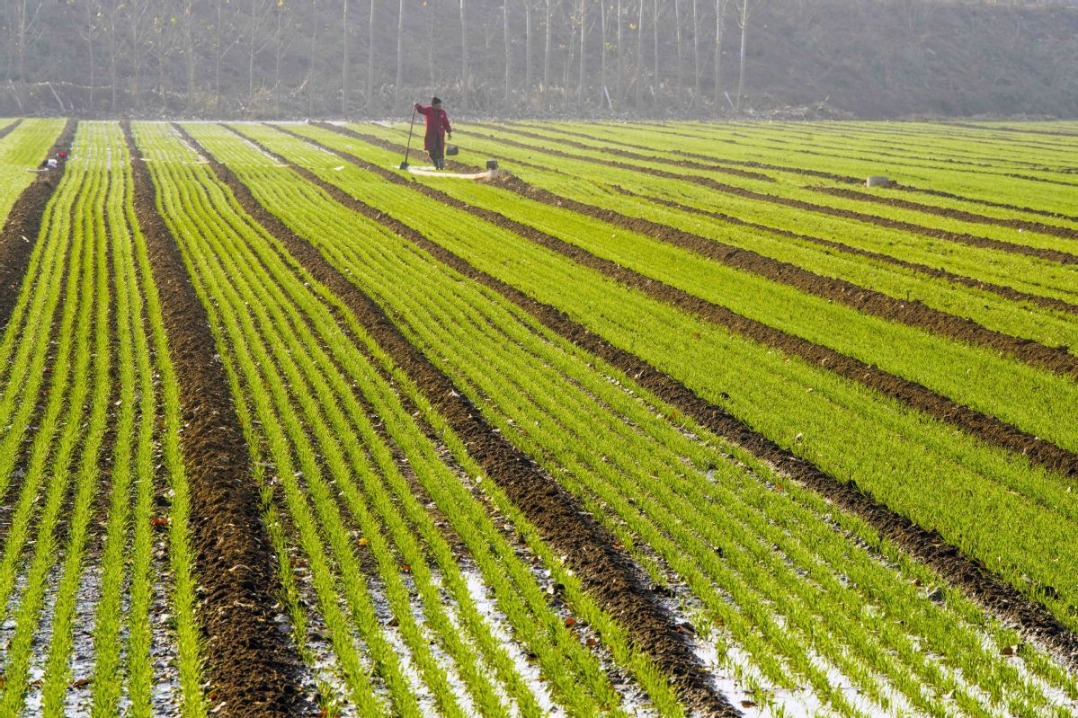Chili peppers every day can keep the doctor away
Study:?Spicy diet linked to heart benefits

The spice-loving people of Sichuan province may have inadvertently unlocked a health secret.
Research spanning 21 years and involving more than 50,000 residents of Sichuan has revealed that people who regularly eat chilis are at a significantly lower risk of developing cardiovascular and cerebrovascular diseases compared with those who rarely or never eat spicy food.
According to the study, which was published recently in the Chinese Journal of Epidemiology, people who eat food spiced with chilis six or seven days per week have an 11 percent lower risk of developing cardiovascular and cerebrovascular problems, such as clotting of blood and narrowing of the spinal canal.
Chen Xiaofang, an associate professor at Chengdu Medical College and one of the authors of the study, said that researchers used survey data collected since 2004 from 54,859 residents ages 30 to 79 in Pengzhou, Sichuan, to analyze factors such as the frequency of chili intake, preferred level of spiciness, preferred forms of chili in diet, and the age at which regular chili consumption started.
Their research showed that people who eat chilis six or seven days per week have a 14 percent lower chance of developing an ischemic heart, a 12 percent lower risk of cerebrovascular diseases, and a 15 percent lower chance of suffering an ischemic stroke.
People who prefer mildly spicy food have a 7 percent lower chance of developing cardiovascular and cerebrovascular diseases, while the risk among those who like strong spice levels is 9 percent lower. Oddly enough, those who eat moderately spicy food have a 14 percent lower risk of such diseases.
"The exact reasons behind the relatively lower risks among moderate spice lovers remain unclear, as the current data lacks critical variables such as daily chili consumption frequency, the amount consumed each time and the individual spice tolerance threshold," Chen said.
She noted that the study found that eating chilis in any form, including chili sauce, chili oil, or fresh or dried chili peppers, is generally associated with protective effects.
The Chinese Guidelines for the Prevention and Treatment of Hypertension (2024 revision), which were published in July last year in the Chinese Journal of Hypertension, pointed out that regular consumption of spicy food may help prevent hypertension or high blood pressure.
Citing Chinese scholars' studies, the guidelines said that capsaicin — the active compound that makes chili peppers hot — can dilate blood vessels and lower blood pressure, offering an important scientific basis for spicy food's protective advantages against cardiometabolic diseases.
Chen Xiaofang, deputy chief physician at Pengzhou Center for Disease Control and Prevention and a co-author of the study, said that while the findings suggest that eating chilis is helpful in preventing cardiovascular and cerebrovascular diseases, there is currently no evidence that spicy food can reverse existing conditions.
She added that people with no underlying diseases can consume a reasonable amount of spicy food as part of a balanced diet, but they should remember that chili intake cannot replace necessary medical treatments.
The study was conducted by researchers from institutions including the Chengdu Medical College's School of Public Health, the Pengzhou Center for Disease Control and Prevention, the Sichuan Center for Disease Control and Prevention, and the Department of Epidemiology and Biostatistics at Peking University's School of Public Health.
Wu Gang, a Sichuan resident and lover of spicy food, called the research findings "a pleasant surprise" and said, "I'll be more into chili peppers now."
Another resident, surnamed Tang, said the findings are very promising, but she would rather remain cautious about the spice level in her daily diet. "I'm afraid of having a stomachache," she added.
pengchao@chinadaily.com.cn
- Police offer bounty for clues about 2 Taiwan online influencers
- China tackles 'Darwin's Dead Sea' of innovations with new pilot platform push
- Chinese researchers solve mystery of seismic activities at eastern Himalayas
- Gathering clues on separatist acts legitimate, necessary: mainland spokesman
- Chinese researchers develop high-efficiency perovskite solar cell with enhanced stability
- New frog species found in South China's Guangdong





































